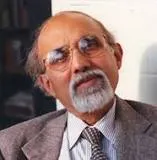Information Flow in Stochastic Control
Sanjoy Mitter
Massachusetts Institute of Technology
Abstract:
In this talk I discuss the nature of the flow of Information from Sensors to Estimators and Controllers in the context of Partially Observable Stochastic Control problems. In this view the Estimator is viewed as a map from an observation trajectory to the trajectory of Conditional Distributions of the state given the observations. It is shown that an optimal estimator satisfies an Informational Dissipation Inequality which relates Shannon Mutual Information to Fisher Information. In the context of Stochastic Control, optimality requires that the Directed Information from Measurements to the Controller is fully utilized through appropriate choice of control. This is a continuous-time formulation and uses the methodology of Stochastic Calculus.
Biography:
Sanjoy K. Mitter joined MIT in 1969 where he has been a professor of electrical engineering since 1973. He joined the Electron Systems Laboratory (renamed the Laboratory for Information and Decision Systems in 1978) at the same time and was the director of LIDS from 1981 to 1999. He has also been a professor of mathematics at the Scuola Normale, Pisa, Italy, from 1986 to 1996. Professor Mitter was awarded the AACC Richard E. Bellman Control Heritage Award for 2007.
He was the McKay Professor at the University of California, Berkeley, in March 2000, and held the Russell-Severance-Springer Chair in fall of 2003. He is a Fellow of the IEEE and a member of the National Academy of Engineering. He is the winner of the 2000 IEEE Control Systems Award and was elected a Foreign Member of Istituto Veneto di Scienze, Lettere ed Arti in 2003.
His current research interests are communication and control in a networked environment, the relationship of statistical and quantum physics to information theory and control, and autonomy and adaptiveness for integrative organization.
